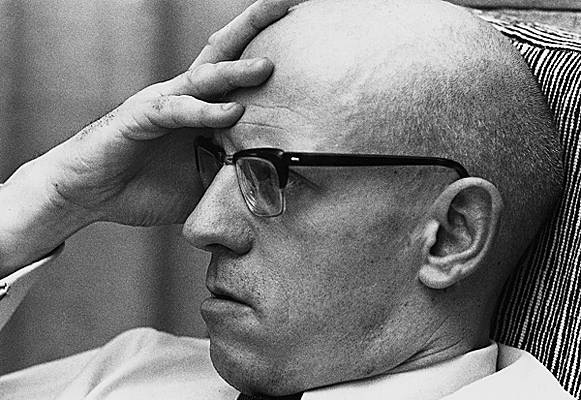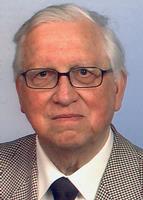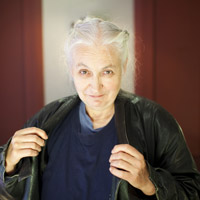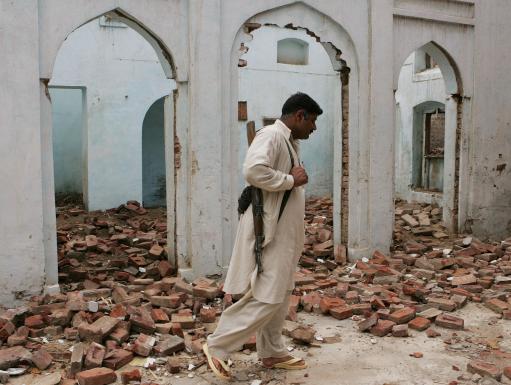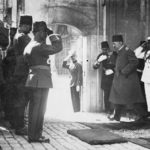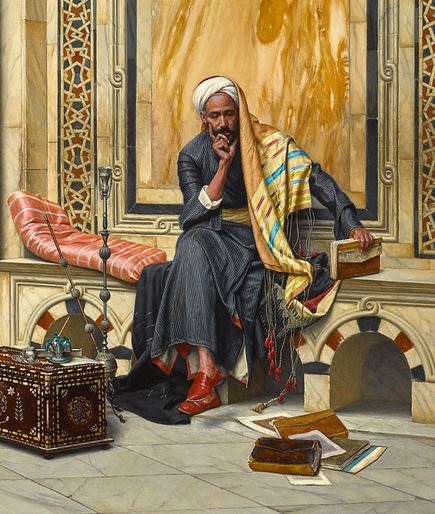
We do not censure Orientalists for applying the historical method to the Arab Islamic heritage. Actually quite the opposite; we thank them for it. We only blame them for stopping halfway, for stopping at the philological, historical or positivist reductionist method which goes back to the 19th century. We say to them that, despite its importance, this is no longer sufficient and that it is necessary to add to this process the methods of modern human and social sciences that emerged in the 20th century such as linguistics, anthropology, comparative religion, psychology, sociology – and in particular historiography as practised by the French École des Annales which has overturned and radically renewed its methodology.
BY HASHEM SALEH
HEREIN LIES the basic difference between ourselves and the Orientalists; it is a difference of an epistemological basis not an ideological one. It is high time that we shift Arab thought on from its ideological stage – a phase of shouting and slogans – to an epistemological phase of sober cognitive responsibility.
Put another way, we cannot provide a complete correct picture of the Islamic heritage or of Islamic societies if we content ourselves with traditional Orientalist methodology. This methodology doubtless has its uses and was even necessary as a preliminary, but we have to go beyond this onto what lies deeper behind. Science has progressed a lot in recent years, as have its methods, terminologies and theories. But Orientalism has become frozen in one single methodology, and it is for this reason that I say that we have to bring about a revolution in Arab Islamic studies similar to the revelation that major French thinkers brought about in their specialist fields. Among these thinkers we should mention Jean-Pierre Vernant with his analysis of the origins of Greek thought, or the great historian Lucien Febvre and his research into the Christian heritage, or the philosopher Michel Foucault and his study of the successive systems of western thought and the epistemological ruptures that separate them, and we should also mention the sociologist Pierre Bourdieu and others. But this major methodological renewal does not prevent us nevertheless from recognising the virtues of the great Orientalists and the signal services they rendered to the Islamic heritage. They were the ones who investigated the works of this heritage in an objective and scientific manner. If for nothing else they should be admired for this.
We are right to blame ourselves for undervaluing the research of others
We are therefore right to criticise Muslims or Arabs for totally rejecting the achievements of academic Orientalism before even studying and evaluating their work. We are right to blame ourselves for this scholarly fickleness and this undervaluing of the research of others. We have to acknowledge this considerable backwardness the Muslims suffer from in their studies on their own heritage and their past, as compared to the studies undertaken by Orientalist scholarship that does focus on this past. But worse than that, a large gap separates off conservative, or even obscurantist, Muslim public opinion which refuses to apply modern historical methods to the heritage. This opinion persists in deluding itself or wasting its time condemning Orientalism and its supposed enmity or fancied conspiracies of sabotage against Islam! We say this at a time when serious Orientalist research needs right now to be translated into the principal languages of Islam – Arabic, Farsi, Turkish, Urdu, Indonesia and others – so that the Islamic consciousness may free itself of its erroneous, anachronistic, outdated, time-worn conceptions. All their major works should be translated so that a fertile scholarly interaction may take place between Muslim and Orientalist scholars on important issues such as the history of civilisations and cultures, or comparative studies in the anthropology of civilisations, cultures and religions.
Taking a quick look at the list of references accompanying every serious Orientalist study one is struck by the absence, bar a few exceptions, of any reference to Arab or Muslim works. This is not due to any ignorance on the part of Orientalists as to the work of Arab or Muslim scholars, nor to any superciliousness or patronising attitudes towards them as some claim, but simply due to the paucity of serious scholarly work carried out by Arabs and Muslims. So perhaps a little humility should be shown by Arab and Muslim intellectuals! For we are but students in the great school of Orientalism. Our position is indeed somewhat wondrous and strange; we refuse to engage in the scientific historical study of our heritage and at the same time we wish to prevent others from undertaking this task! Instead of thanking Orientalism for its sterling services we pour the cup of our anger over it and spend all our time cursing it and insulting it. It would be better if we were to spend this time producing serious scholarly works on our Islamic heritage as the major Orientalists are doing. Let us enter into the arena of scientific research instead of simply croaking and squawking.
Just to give some idea of the noble services rendered by Orientalism to the Arab Islamic heritage one could mention the updated second edition of the Encyclopaedia of Islam. It constitutes an inexhaustible treasure-chest of precise verified historical information on all aspects of the heritage: its personalities, its events, doctrines, sects and trends. One could also mention the recently completed Encyclopaedia of the Qur’ān with contributions from dozens of Orientalist, Arab and Muslim researchers studying in western universities. In this work every word of the Qur’ān has been subjected to exhaustive philological and historical analysis to reveal its origin, its category and relationship to its original environment in the Arabian Peninsula of the 7th century A.D. It also highlights its relationship with other Semitic languages cognate with Arabic. As a result of this major endeavour some brilliant light has been shed upon the Qur’ānic text, with the result that we are able to understand it in a new way and see it through new eyes.[1] We can now understand it as it was meant to be understood and in all of its dimensions.
Instead of thanking Orientalism, we pour the cup of our anger over it
We might also mention the great intellectual project carried out by the distinguished German Orientalist Josef van Ess who, between the years 1995-1991, published in Berlin a six-part volume entitled Theology and Society in the First Three Centuries of the Hijra – A History of Religious Thought at the Beginning of Islam. This is considered to be a key work in the field of Arab Islamic studies and we cannot understand how the earliest Islamic doctrines and sects came into formation without referring back to this work. It is a historico-archaeological study that delves into the depths of the Islamic heritage. It thus frees us from many erroneous conceptions that we have of our heritage, our doctrines and religious denominations since it presents us for the first time with a historical view of these. And that view is not the reverential or sacralised view that has for centuries dominated the consciousness of millions of Muslims. And we have to ask ourselves here: why is this book still not translated into Arabic? What are the political, cultural or religious reasons that are still preventing its translation? Who stands to benefit from this? Does this merely benefit the frozen conservative Muslims or the strictly orthodox fundamentalists? Does this merely serve the interest of Arab backwardness?
This book is now necessary for anyone who seeks to pursue and widen his research on this foundational, indeed decisive, period in the history of Islam. We mean here the period of the first three centuries AH. If all the illuminating discoveries and subtle analyses contained in this sizeable work were known to a proportion of the Arab or Muslim public, things would be entirely different; we would be able to resolve clearly and effectively the problem of Sunni/Shīʽa/Ibādī sectarian conflict; all sectarian problems would resolve themselves when their hidden roots and historical debts were revealed. We know full well that these things are about to tear us apart – from Yemen to Iraq, through the Arabian Gulf, Syria, Lebanon and even Iran and Afghanistan. If we were to translate this book and all this brilliant new research on our heritage, we would be able to overcome the fanatical, intolerant and ignorant movements which now prevail over us. We would, finally, be able to leave behind the covert or overt religious and sectarian wars which threaten our national unity and stand poised to ignite civil wars in every place. For it is knowledge that liberates, not ignorance, and we now suffer from a considerable dearth of knowledge, not ideology. It has come to my notice that the Turks are translating, or have already translated, this work and perhaps the Iranians too. But not the Arabs!
Yes, serious academic Orientalism has contributed to the historicization of Islamic thought after it had been steeped head to foot in theological and sanctified certainties and superstitions. These traditional certainties are the legacy of the decadence of the Middle Ages and they have smothered Islamic history to make it appear something above history or superior to it, or even without any relation to history altogether. Here is where the great liberating feature of Orientalist studies lies. We have now entered upon a phase of historicization,[2] the phase of freeing ourselves from traditional conceptions that generally serve to blur historical events or transform then into superstitions or inflated myths. We have begun to enter gradually upon the ‘historical’ phase; whereby everything that has been inflated, revered and deprived of its historical form we will have to undercover to reveal its historical, real and material form. This is a process which has a beginning but which does not have an end. It will perhaps take the entire 21st-century to carry this out, or at least the first half of it. It will be accompanied by the greatest act of liberation to the Islamic consciousness in its entire history.
The historicization process will have to clash with strong psychological obstacles located deep within the Islamic consciousness
This is what we mean by ‘enlightenment’. All our conceptions concerning our heritage now need to be historicised. With respect to this historicization we should also not forget to point to a very important work of reference published a few years ago in Paris under the title The Lord of the Tribes – The Islam of Muhammad.[3] It was written by a French researcher named Jacqueline Chabbi who is married to a Tunisian. First presented as a doctoral thesis under the supervision of the famous historian Claude Cahen, the work is nothing less than a radical attempt to historicise Qur’ānic discourse – hence its importance and huge liberating potential over the forthcoming decades. I personally do not think that it is possible at present to translate this into Arabic since the Islamic consciousness is not prepared to receive it or accept it.
Nevertheless, the works of the German Von Eiss and the French Jacqueline Chabbi, and other academic Orientalists have given us an eloquent lesson in how to furnish a historical picture of the first, foundational period of Islam. We say this in the knowledge that the historians of the Abbasid period have stripped this very period of all of its historical character and made it appear as an ideal, sacralised paradigm divorced from anything human, mundane or historical. We should not forget that the Christians also did this with their own heritage. So we can see that the historicization process will not be effortless or easy since it will have to clash with strong psychological obstacles located deep within the Islamic consciousness. Nevertheless, the battle is joined…
[1] From the point of view of history I should also celebrate here a dictionary of the Qur’ān recently published in French. It also casts startling new light on the Qur’ānic text. See Dictionnaire du Coran, Robert Laffont, Paris 2007.
[2] Just by way of parenthesis, the term arkhana has been coined by myself to provide an equivalent to the foreign term ‘historicization’, so that we may say yu’arkhin (‘ historicize’). This is a very important term and needs to gain wide acceptance since it answers to an urgent need in Arab culture. At least this is how I see it and I may of course be wrong. In any case its matter little who did or did not first coin the term; what is important is that we will have to coin hundreds and thousands of new terms in order for our language to keep pace with science and thought.
[3] Jacqueline Chabbi, Le Seigneur des tribus. L’islam de Mahomet. Paris 1997.
Main image: The Cairene Scribe by Ludwig Deutsch 1894
See Part One of this essay here
